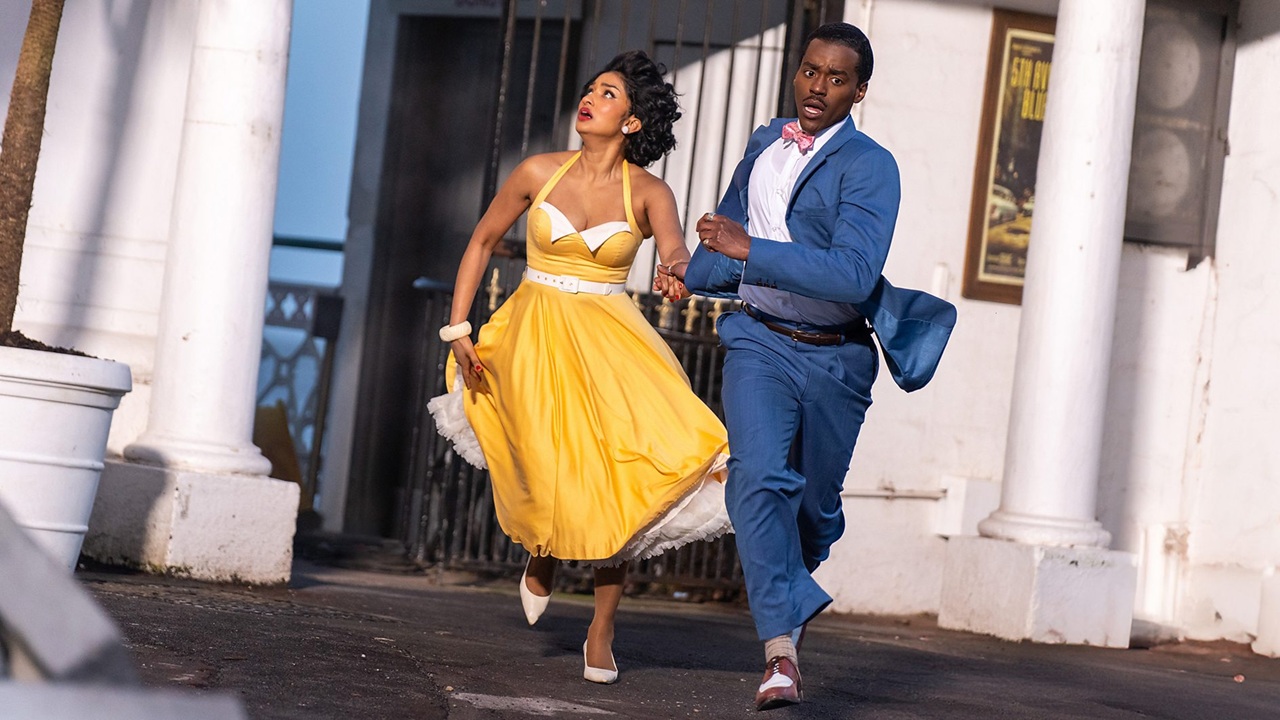No boxing movie is just about boxing, of course, given our national penchant for building up some punches and jabs into metaphors for class tension or American resilience or whatever's relevant at the moment. At least with The Fighter, his endearing and tenacious new film, David O. Russell isn't turning Micky Ward's life into a metaphor for something bigger and vaguer. Instead he's just telling Micky's true, weird, eventually triumphant story, lingering on the colorful characters and Massachusetts accents and horrendous early 90s fashion in a way that draws the audience persuasively into Micky's hardscrabble world. Even when the narrative meanders, the phenomenal performances and Russell's dogged interest in them make The Fighter rousing, surprisingly funny, and even heartfelt too.
While there's much to like about The Fighter it has a deep problem at its center in Mark Wahlberg, a perfectly likable actor who's over his head trying to play Micky, whose gentleness and passivity require a more dynamic actor to bring out more subtle shades. Growing up in blue-collar Lowell, Massachusetts, Micky has trained as a boxer mostly because he's decent at it, his older brother Dicky (Christian Bale-- more on him later) is a former champ who can coach him, and his mother (Melissa Leo) has jumped on Micky's boxing career as her meal ticket. Despite his burgeoning fame he's really just a yes-man to the people around him, to the point that he agrees to a drastically unfair fight just so everyone else can get their payday from the bout.
It's no surprise that Micky has no faith in his own value, though-- he grew up surrounded not just by seven domineering sisters (played somewhat unkindly for comedy by Russell), but by his half-brother Dicky, a charismatic dynamo who remains a beloved son of Lowell even while nursing a raging crack habit. When Micky meets a sharp-tongued local bartender (Amy Adams) who signs on to manage his career and point him in a better direction, Micky takes steps to get out from under the thumb of his mother and brother, and the tension in the film comes not from whether or not he can win the big fight, but how this family will work out their significant issues. It's familial drama disguised as a sports biopic, and far from feeling like a bait-and-switch, the dual focus on the bouts between Micky and his sisters and the bouts in the ring gives the The Fighter significant added depth.
Even burdened by Wahlberg's aforementioned blank good-guy demeanor, The Fighter's cast turns nearly every scene into something complicated and rich, squabbling with each other and bringing up old grudges with quick wits and often brutal force. Bale, who has turned in a series of bland heroic performances in major blockbusters over the last few years, is practically reborn here, playing both the jangly crack-addled Dicky early in the film and a more centered, sober version later on, with intensity but true likability. It's one thing to play a drug addict but another entirely to play a funny, endearing one, and someone who comes around the other side of addiction maintaining every bit of that vibrant personality. Best of all, Bale's tremendous performance only boosts his co-stars; Wahlberg livens up when Bale is with him, and both Leo and Adams-- each fierce and dynamic in their own rights-- spar gladly with Bale in their own scenes. One scene between Bale and Adams in particular is the best in the movie, crackling with outright aggression and a grim determination to work together on behalf of the man they both love.
As it turns out the dullest parts of this film about boxing are all the boxing scenes, which Russell shoots with film stock that mimics the look of real old HBO boxing broadcasts, but otherwise he shows little interest in the mechanics and strategies of the sport. Between the lackluster fight scenes and the narrative that sputters a few times before picking up some momentum in the second half, The Fighter isn't quite as successful as it could have been, but relying as it does on its characters and the stupendous actors who embody most of them, it works quite well in overcoming its flaws. After so many decades of movies about prizefighters and their stories, it really is possible to make an original one simply by sticking to the strange, indelible truth of a life like Micky Ward's.
Staff Writer at CinemaBlend












